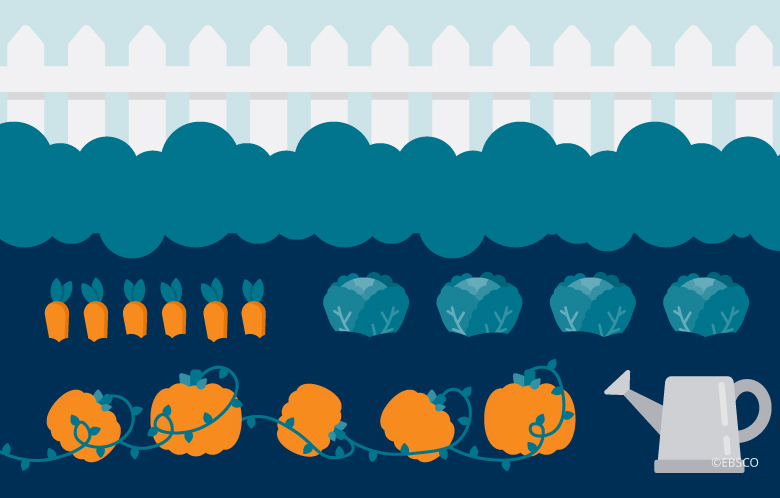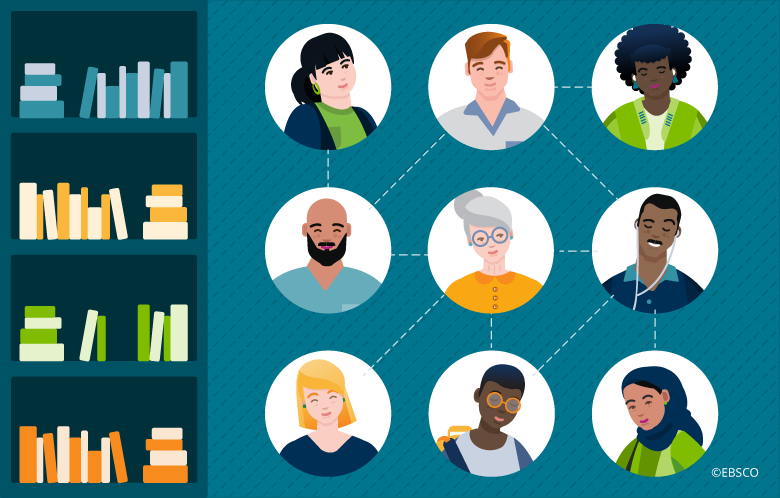Libraries around the globe are embracing opportunities to support and address the United Nations’ Sustainable Development Goals (SDGs). The International Federation of Library Associations (IFLA) maintains a Library Map of the World featuring stories that demonstrate how libraries and access to information contribute to improved outcomes across all SDGs.
In this blog post, the third in our series, we look specifically at how libraries are supporting Goal 8, which focuses on promoting inclusive and sustainable economic growth, full and productive employment, and decent work for all.
Providing Computer and Internet Access
Public libraries provide access to computers and the internet, with some also offering Wi-Fi hotspots for checkout. This service is critical to citizens who live in rural areas with spotty broadband connections and those who cannot afford the cost of home internet service. People use library computers to prepare resumes and cover letters, find and apply for jobs, check email, take online courses and more.
In addition to public computers, many libraries offer digital literacy education to patrons of all ages through technology classes and e-learning resources such as LearningExpress® Computer Skills. Computer Skills contains more than 100 self-paced video tutorials on using computers, the internet, social media, and popular software programs from Microsoft and Adobe. Job seekers who develop proficiency in these areas can better compete with other applicants.
Helping Job Seekers Develop Skills and Find Decent Work
According to the UN, the coronavirus pandemic has led to the loss of the equivalent of 255 million full-time jobs, four times the number lost during the global financial crisis of 2008. Although economic recovery is under way, many countries do not expect to see their economies return to pre-pandemic levels until 2023.
Libraries can speed up recovery in their communities and help job seekers get hired by providing access to skill-building resources such as LearningExpress Library® Complete. This e-learning platform (featuring Job & Career Accelerator) contains practice tests, interactive tutorials, e-books, articles and flashcards to help those looking to improve core academic skills, pass a high school equivalency test, prepare for college, join the military, obtain occupational certification, find a job, write a resume and much more. Read how LearningExpress is helping patrons of Josephine Community Library District in Oregon achieve their career-related goals.
Nurturing and Sustaining Small Businesses
In addition, libraries can augment their collection of information resources to promote small business ownership. These include research databases containing information on how to start and manage a business.
For example, Reference Solutions from Data Axle provides detailed business and residential data that can help entrepreneurs conduct competitive analysis, look for business partnerships, raise funds, create marketing plans and more. Small Business Reference Center™ contains full text for top consumer small business reference books (including those from Nolo) as well as magazine articles and how-to videos covering a wide range of small business topics, from writing a business plan to managing employees.
Libraries can also connect aspiring entrepreneurs with local chambers of commerce, start-up incubators and other resources to help them get their business ideas off the ground. Read how one county library system in North Carolina used EBSCO’s Entrepreneurial Mindset Training Course to promote entrepreneurship during the COVID-19 pandemic.
Promoting Language Acquisition
Between 2015 and 2017, the city-state of Hamburg, Germany, received approximately 66,000 refugees. “For these newcomers, a key priority after shelter, food and medical care is language acquisition,” writes a representative from the Hamburg Public Library System in a story featured on IFLA’s Library Map of the World. “Many have no way of attending language classes as they are often expensive and not open to all refugees and migrants. This is where libraries can make the difference.”
In addition to skills training, many libraries provide language learning classes and resources such as Rosetta Stone® Library Solution to help immigrants settle into their new communities, develop confidence in multilingual settings, and find work. These inclusive services have become especially critical at a time when many communities are experiencing an influx of refugees and asylum seekers fleeing from war and poverty.
Supporting Research
Libraries are equipped to aid research across all 17 SDGs, but for those looking to add digital reference materials that support research focused specifically on Goal 8, EBSCO offers high-quality databases, e-books and digital magazines.
Business Source® Ultimate provides researchers with unparalleled journal content on global business topics and trends as well as essential industry information. Users will find case studies, country economic reports, SWOT analyses, company profiles, ahead-of-print content, and videos from leading business publishers including the Harvard Faculty Seminar Series.
To help entrepreneurs and small business owners stay up to date on the latest market news, Entrepreneurial Studies Source™ contains full-text journals, books and company profiles as well as videos from the Harvard Faculty Seminar Series. Flipster® provides on-the-go digital access to magazines such as Entrepreneur, Bloomberg Businessweek, Forbes, Fortune, Black Enterprise and Workforce.
Finally, EBSCO eBooks™ offers several collections relevant to business students, entrepreneurs and small business owners. These include the Business Collection and Harvard Business Review Press Collection subscription collections as well as subject sets in Accounting and Finance, Business, Economics, and Leadership and Management.
In our final post of the series, we’ll look at how libraries are supporting Goals 12-15, which focus on protecting the planet, conserving our resources, and promoting sustainable development.



